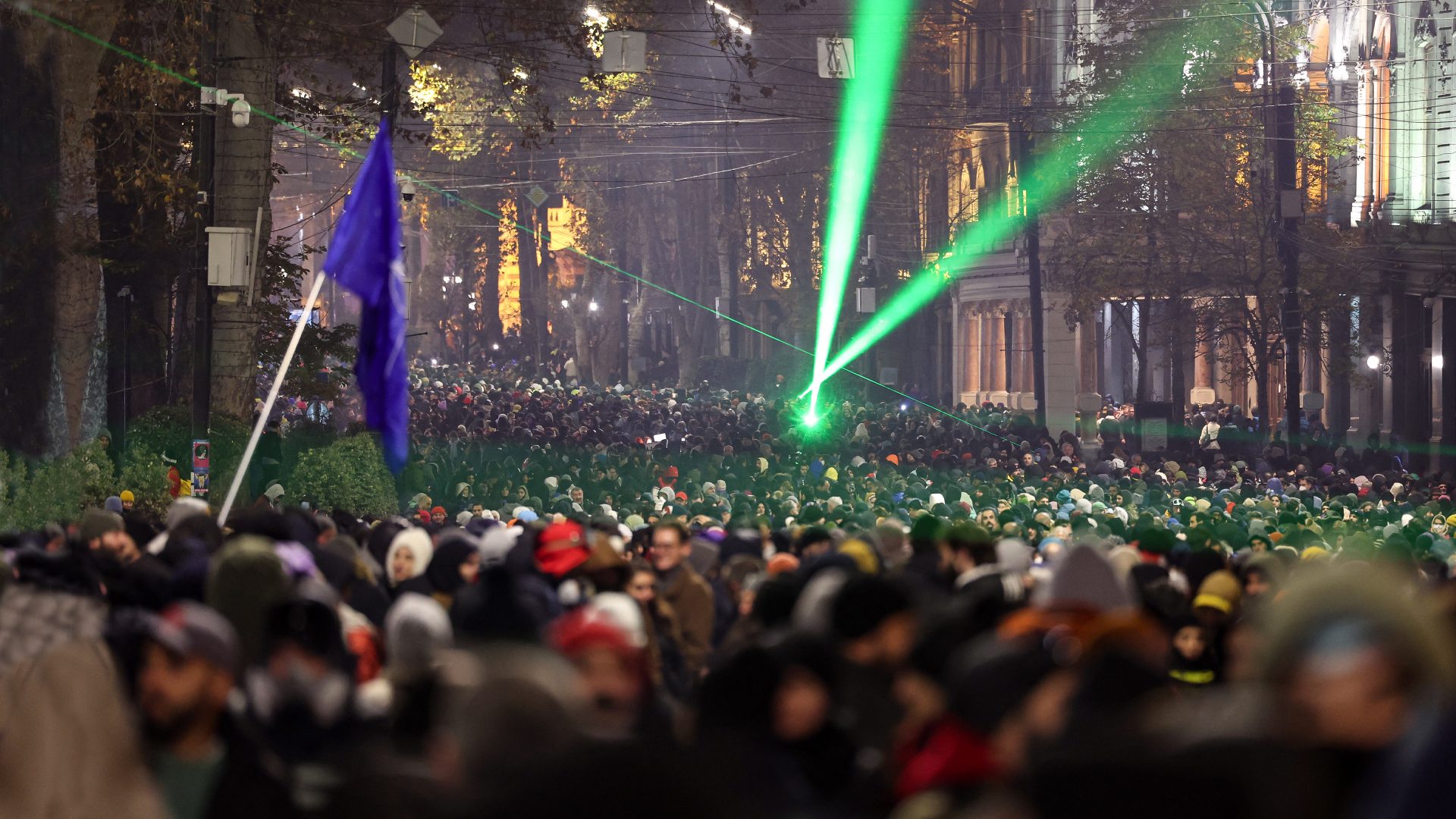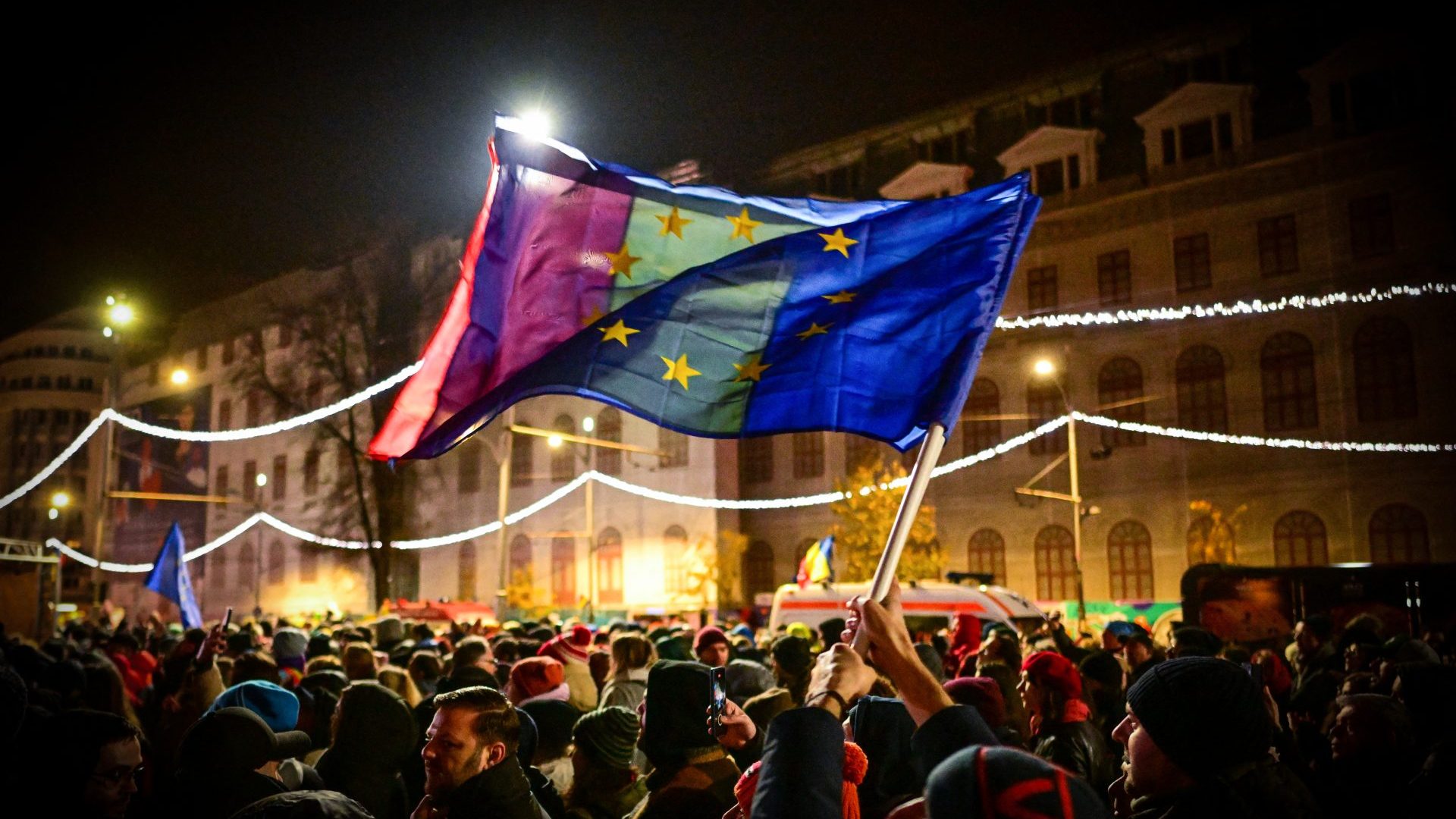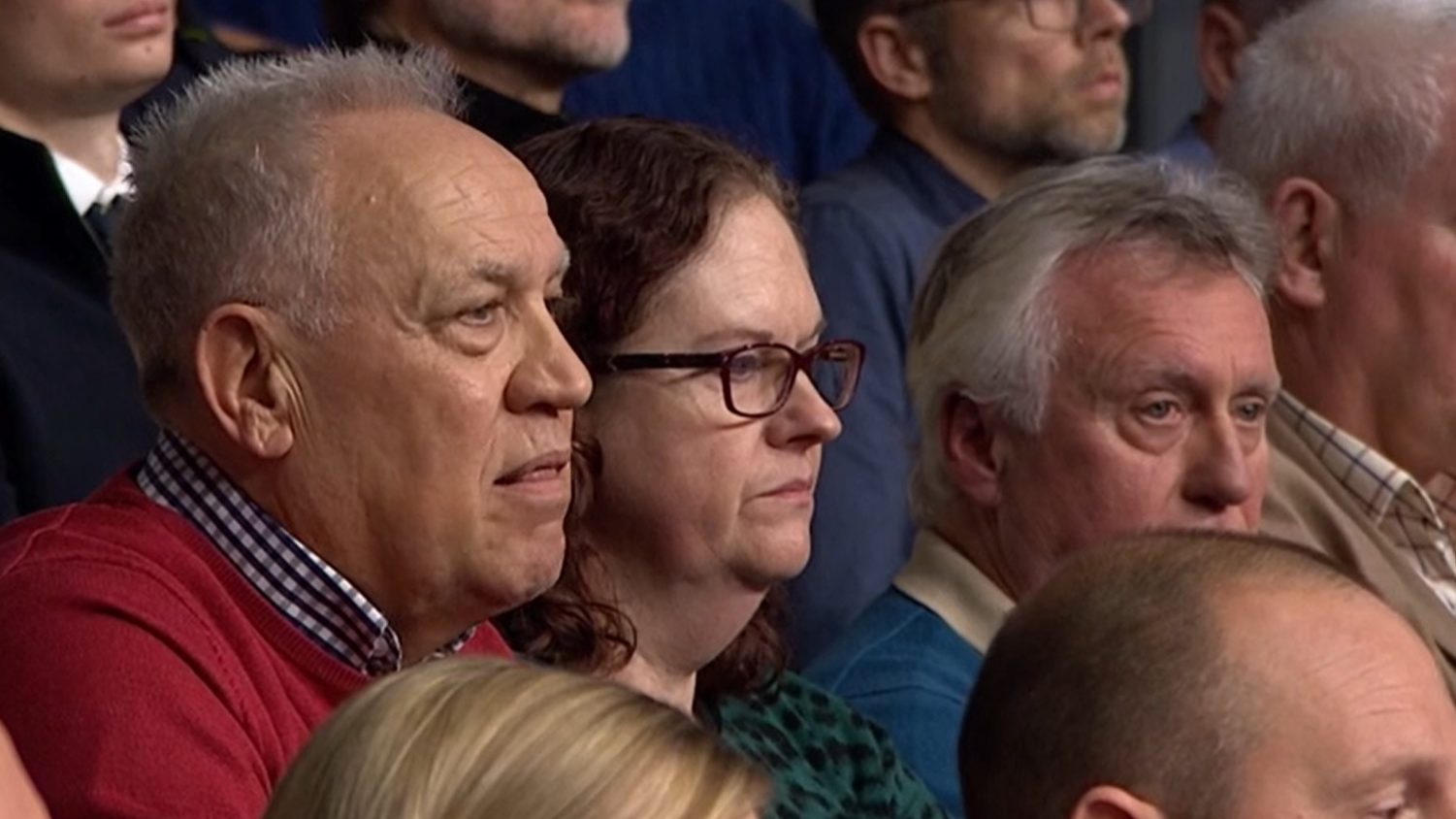The uprising that has engulfed Tbilisi’s central Rustaveli Avenue each night for the past week does not have a leader, an organising committee, or even a name. But it’s not chaos.
It unfolds each night in a fine balance between popular anger and state violence.
The prime minister, Irakli Kobakhidze, of the ruling Georgian Dream party played the first note on November 28, when he announced that Georgia would suspend its bid for EU integration – a long-held aspiration enshrined in the country’s constitution.
Since the first night of spontaneous protest, demonstrations have spread to every large city, and even to small towns. Major Georgian corporations have expressed their dissent, and waves of civil servants have resigned.
The Georgian Dream government – led from the shadows by the billionaire oligarch Bidzina Ivanishvili – has shown no willingness to negotiate. Instead, they’ve escalated, both in the violence meted out against protesters and journalists, and in raids on activists and opposition politicians.
So every night, tens of thousands of Georgians return to the streets, motivated by whatever the idea of “Europe” represents to them: democracy, development, or protection from Russian imperial aggression.
The first movement of the protest begins slowly as protesters trickle down Rustaveli Avenue and come to rest around bonfires or thermoses of coffee. A brave few shoot fireworks into the house of parliament’s colonnade, exploding blossoms of red, green and yellow over unmoving riot police.
The crowd cheers each time, occasionally breaking into chants of “Bidzinas ra? Dedas tq’unah!” – “What to Bidzina? Fuck his mother!”
The second movement happens all at once. Police close in from Liberty Square and two or three side streets. “Spetsnaz” special forces dash out ahead to make arrests, spider-like in their tight black uniforms and bulky tactical helmets.
In the past week, more than 400 protesters have been detained, with many reporting beatings in police custody. An image circulating on social media shows a collage of black eyes, bleeding faces and broken noses. A 22-year-old remains in a coma after being hit in the head with a teargas canister.
At these moments, Old Tbilisi’s charming side streets are the most dangerous place you can be. One night, after ducking off for a shot of fiery chacha brandy at a nearby bar, some friends and I found ourselves cowering in a courtyard while spetsnaz trooped down the pavement outside.
“Stay as long as you need to,” the undershirt-clad homeowner told us.
Those who remain on Rustaveli construct barricades out of benches, rubbish bins, and electric Bolt scooters.
Here, another internal rhythm takes hold, and the crowd advances and retreats in waves, firing Roman candles and then escaping clouds of teargas. I had the feeling of an astronaut on a strange planet as I followed a medic friend through the noxious cloud, protected by an industrial gas mask and pink swimming goggles.
At dawn, the most determined make their last stand, and police burst into subway stations and pharmacies to snatch the unlucky.
There are, of course, variations on the theme.
The first few nights, when police weren’t yet stationed in front of parliament, the building seemed to absorb the anger of the Georgian people. They scrawled graffiti on every available surface, smashed windows, and briefly started a fire inside. Ivanishvili was burned in effigy on the steps.
In the days that have followed, protesters have blocked Georgia’s Black Sea port in Poti and staged a sit-in at the public broadcaster to spread their message to the country’s far-flung regions. One detainee said he began a hunger strike after police put pressure on him to accuse political leaders of directing his actions.
Meanwhile, state repression is ramping up. Police have swept the offices of a handful of major opposition parties and rounded up activists. Fireworks, gas masks, spray paint, and laser pointers are all banned.
Street attacks by government-aligned thugs known as “titushky” are also increasing. On December 7, one group of titushky brutally beat multiple politicians inside their offices, while another assaulted a camera crew on live TV.
Victor Swezey is a Tbilisi-based independent journalist and Fulbright research fellow



